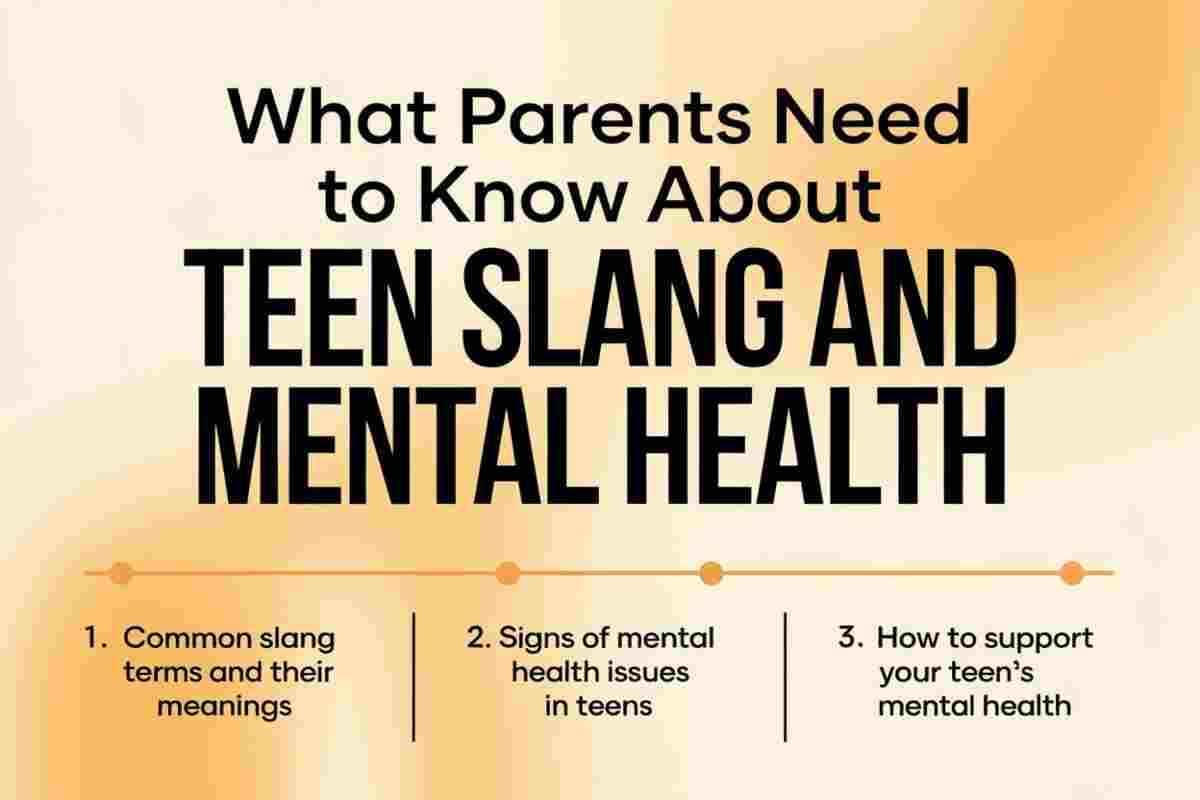As parents, understanding and connecting with our teens can sometimes feel like navigating a different world, especially regarding language. The teen years are marked by rapid changes, intense emotions, and a search for identity, all of which influence how teens express themselves. One way they do this is through a unique set of slang terms and abbreviations that might sound utterly foreign to parents. Understanding this language can be a crucial step in opening up communication, especially when discussing sensitive issues like mental health and depression.
Let’s explore some standard slang terms teens use, why they use them, and how a little insight into their language can help you become a more understanding and supportive parent.
Why Teens Use Slang
Teens use slang for many reasons, including:
- Creating a sense of identity and belonging: Slang helps teens connect to their peer group and sets them apart from other generations.
- Expressing themselves uniquely: Sometimes, there are simply no words in adult language that capture the feelings and experiences of growing up today.
- Guarding privacy: Slang can act as a code to shield their conversations from prying ears, including parents.
Standard Slang Terms Parents Might Hear
Here’s a quick guide to some popular teen slang that you may come across:
- APN – Stands for Antidepressant Prescribing Nurse, a term that teens might casually refer to when discussing mental health support with friends. It reflects how some teens are navigating conversations about mental health treatments.
- Vibe Check – This term is used when someone’s trying to gauge a friend’s emotional or mental state. If a teen says, I failed my vibe check, it may indicate they’re not feeling their best.
- Low-key or High-key – Teens often use these terms to describe the intensity of their feelings or experiences. For example, I’m low-key stressed suggests they’re trying to downplay their emotions, while high-key means fully embracing them.
- Triggered – This term has roots in discussions about mental health and PTSD but is used more casually by teens to indicate that something has provoked an emotional response. It could be a sign they feel frustrated or upset.
- Mood – When teens say mood, they identify with something on a personal level. For instance, saying, That’s a mood could mean they relate strongly to the situation or feeling.
- Ghosting refers to suddenly cutting off communication without explanation. If a teen mentions someone ghosted them, it’s often in the context of a friend or even a potential romantic interest ignoring them, which can be hurtful.
Why Understanding Teen Slang Matters for Parents
Familiarizing yourself with teen slang can have several benefits:
- Improved communication: When parents understand teens’ language, they are better equipped to engage in meaningful conversations.
- Strengthened trust: Teens are more likely to open up if they feel their parents are trying to understand their world without judgment.
- Insight into emotional health: Some slang terms provide clues about a teen’s mental state, which can help parents recognize when their child might be struggling with anxiety, depression, or other issues.
Understanding and connecting through language is fundamental regarding topics like mental health. Teens are becoming more open about discussing mental health challenges, but they often express it in their way.
How to Start Conversations with Your Teen About Mental Health
Here are a few tips for starting the conversation about mental health with your teen:
- Learn without judgment: Ask your teen to explain specific terms, even if you already know them. Teens often appreciate the chance to teach you something about their world.
- Show empathy: If your teen uses phrases like I’m low-key anxious or I need a vibe check, ask open-ended questions like, Do you want to talk about what’s making you feel that way?
- Be an active listener: Give them space to speak without immediately responding. Listen actively, and avoid advising unless they ask for it.
- Educate yourself: Becoming familiar with terms related to mental health can help you respond thoughtfully. For instance, if they mention someone is ghosting them, you could ask how it makes them feel and if they’d like to discuss it further.
Where to Find Help
While understanding slang can open doors for communication, you may find that your teen needs additional support. If you’re concerned about your teen’s mental health, consider reaching out to a mental health professional. Sometimes, teens feel more comfortable talking to an Antidepressant Prescribing Nurse (APN) or a counselor, someone who can provide a safe and understanding environment for them to discuss their feelings.
Final Thoughts
Teen slang may initially seem confusing, but it’s also a powerful tool for connection. By familiarizing yourself with the language of today’s teens, you can better understand their world, recognize when they might need support, and become a trusted ally as they navigate the challenges of growing up. So, the next time your teen drops a new term, take it as an opportunity to learn—and let the conversation flow from there.
Decode Teen Slang Today!
Still don’t understand your teen’s language? Check out our next article that breaks down popular phrases, what they mean, and how they can help you communicate better. Stay in the loop, read more!








